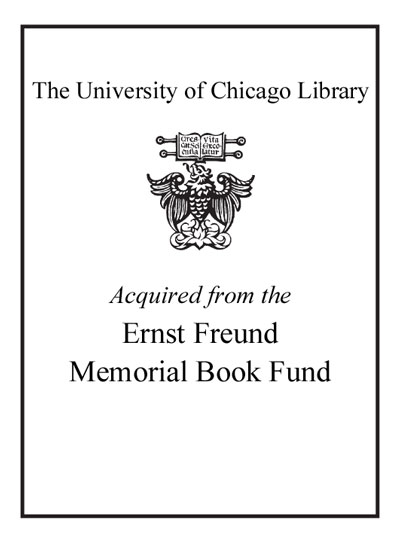Effective expert witnessing : practices for the 21st century /
Saved in:
| Author / Creator: | Matson, Jack V. |
|---|---|
| Edition: | 5th ed. |
| Imprint: | Boca Raton : CRC Press, c2013. |
| Description: | xv, 188 p. ; 25 cm. + 1 CD-ROM (4 3/4 in.) |
| Language: | English |
| Subject: | |
| Format: | Print Book |
| URL for this record: | http://pi.lib.uchicago.edu/1001/cat/bib/8932444 |
Table of Contents:
- Preface
- Acknowledgments
- The Author
- Section I. The Legal Environment and Expert Witnessing
- 1. The Legal Environment
- Lawyers and Litigation
- Evidence
- The Role of the Expert Witness
- What Is an Expert Witness?
- How Experts Can Be Utilized in Litigation
- Two Types of Experts: Consulting and Testifying
- The Relationship between Lawyers and Experts
- The Expert Report
- 2. A Closer Look at the Impact of Daubert
- Conformity versus Flexibility
- Standards for Reliability and Relevance
- The Role of the Judge under Daubert
- Daubert Applied
- The Impact of Daubert on Expert Witnessing
- A Word on Junk Science
- An Additional Impact of Daubert-The Amended Rules of Evidence
- 3. Key Cases and Precedents Affecting Expert Witnessing
- Frye v. United States (1923)
- Daubert v. Merrell Dow Pharmaceuticals, Inc. (1993)
- General Electric v. Joiner (1997)
- Carmichael v. Kumho Tire Company (1998)
- The Hearsay Rule and Its Relevance to Experts
- In Summary
- Section II. The Litigation Process
- 4. The Pretrial Process
- Affirmative Defenses
- Discovery
- Interrogatories
- Automatic Disclosure
- Production of Documents
- Organization of Documents
- Chain of Custody
- The Expert Report
- Preparing the Expert Report
- Deposition
- Preparing for a Deposition
- The Process of Deposing Expert Witnesses
- The Subpoena
- The Setting
- The Opposing Attorney's Intent
- Preparing for the Daubert Challenge
- Additional Pointers for the Deposition
- Ending the Deposition
- 5. Preparing for Trial
- Developing the Trial Theme
- Preparing the Lawyers
- Changing Your Opinion
- Trial Exhibits
- Motions
- Understanding the Judge
- Types of Juries
- Jury Selection
- 6. The Courtroom Drama
- The Jury-the True "Audience" of the Trial
- Opening Statements
- Direct Examination
- The Role of the Attorney
- Building the Case
- Preparing for Cross-Examination
- Cross-Examination
- Opposing Counsel's Strategies
- Hypothetical Questions
- Other Important Aspects of Cross-Examination
- Jury Instructions and Closing Arguments
- Post-Trial Motions and Appeals
- Section III. The Art, Business, and Future of Expert Witnessing
- 7. The Art of Expert Witnessing
- Developing the Professional Relationship
- Maximizing Your Effectiveness
- Practice
- Study
- Be Prepared
- Be Professional
- Be Organized
- Tell the Story
- Show Emotion
- Educate
- Create Vivid Visualizations
- The Ethics of Expert Witnessing
- The Future of Expert Witnessing
- Revisiting the Use of "Neutral" Experts
- The Impact of Technology and Social Media
- Alternative Dispute Resolution
- Tort Reform
- 8. The Business of Expert Witnessing
- Forming an Expert Witnessing Business
- Contractual Considerations for Expert Witnesses
- Basic Types of Contractual Arrangements
- Retainer Contracts
- Time and Materials Contracts
- Flat Fee Contracts
- Term of the Agreement
- Fees and Expenses
- Billing and Payment Terms
- Confidentiality
- Conflict of Interest
- Statement of Work
- Termination
- Marketing
- Organizational Directories
- Professional Societies
- Expert Witness Service Companies
- Networking
- Letters to Attorneys
- Advertising
- Direct Mail
- Expert Referral Agencies
- Education-Based Marketing Strategies
- 9. Expert Immunity, Professional Malpractice, and Civil Liability
- Hypothetical Situation
- Expert Mary Watson Retained
- Mary Watson s Investigation and Expert Opinions
- Deposition of Mary Watson
- Deposition Debriefing of Mary Watson
- Legal Action
- Breach-of-Contract Action
- Hearing
- Possible Judicial Outcomes
- The Judge's Decision
- Afterthoughts
- Section IV. The Importance of Psychological Factors In Testifying
- 10. Psychology and the Art of Expert Persuasion
- Overview
- How Are Today s Jurors Different?
- Psychology of Juries
- Jury Decision Making
- Cognitive Dissonance and Heuristics
- Thin Slicing and Cognitive Embodiment
- Learning Style, Persuasion, and Expectations
- Summary
- What Makes an Expert Effective?
- Credibility
- Testifying in Depositions or at Trial
- Recommendations for Nonverbal Behavior
- Effective Verbal Communication
- How Graphics and Technology Help
- Graphics Can Affect Cognitions
- Specific Ways That Graphics and Technology Change the Trial Canvas
- Are Judges Biased?
- Discoverability
- In Conclusion
- 11. Nine of the Worst Mistakes That Experts Make and How to Avoid Them
- Establishing Credibility
- Number 1: Mr. Blinkoff versus Mr. Blinkon
- Likeability
- Number 2: Mr. Unlikeable versus Mr. Likeable
- Number 3: Dr. Bellicose versus Dr. Zen
- Confidence
- Number 4: Mr. Wimpy versus Mr. Warrior
- Number 5: Ms. Freako versus Ms. Cool
- Trustworthiness
- Number 6: Dr. Bias versus Dr. Fair
- Number 7: Dr. Fudger versus Dr. Precise
- Knowledge
- Number 8: Ms. Make Up versus Ms. Exact
- Credibility
- Number 9: Robot versus Human
- Bibliography
- Appendix: Expert Witness Resources
- Index

